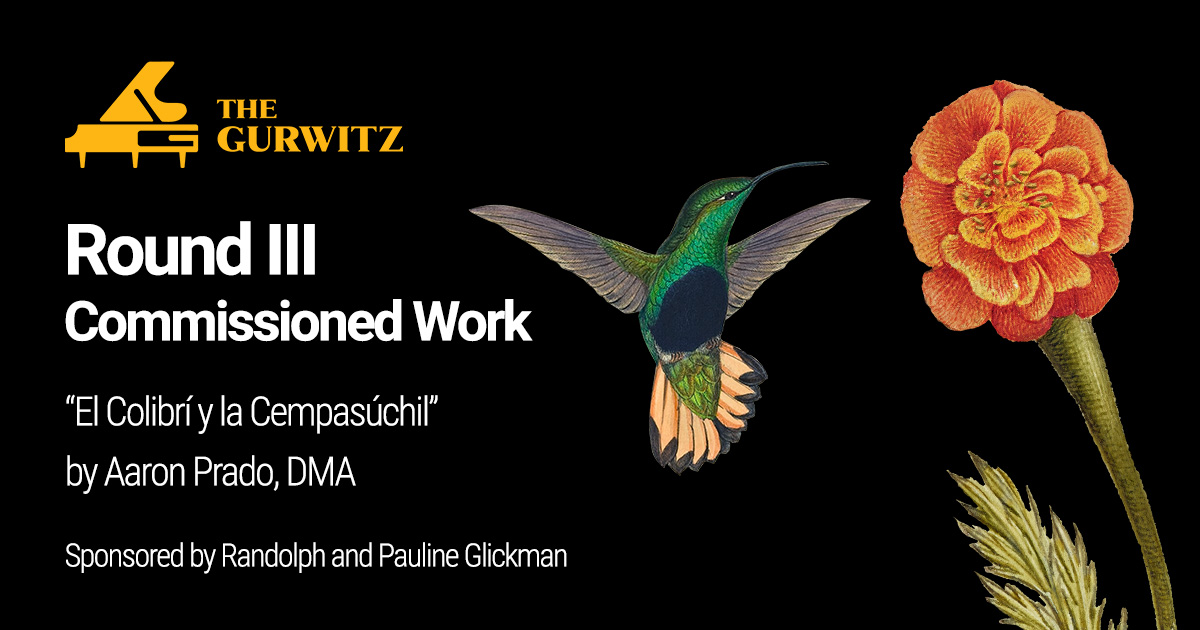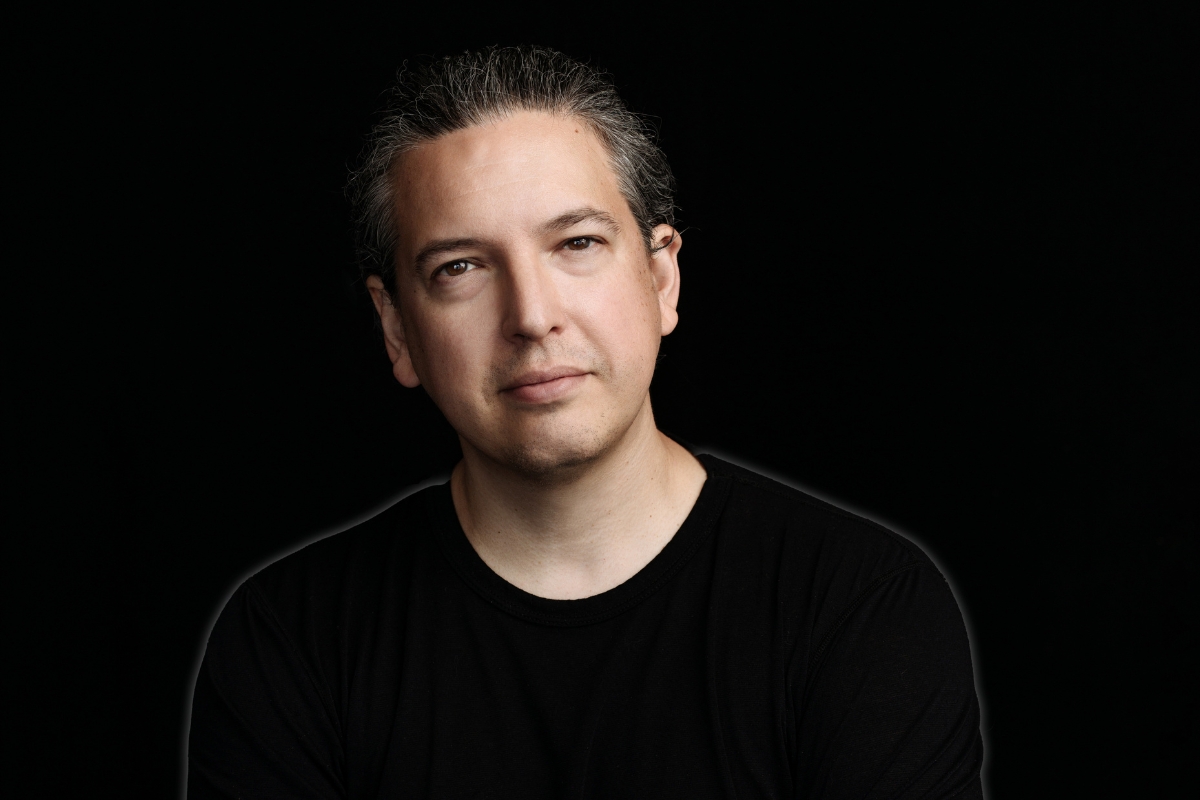
For each Gurwitz competition, a composer is commissioned to write a piece for piano and chamber ensemble, to be performed by each competition finalist in Round III. What makes this composition unique is that it must draw from a country and/or cultural aspect, and also include of a cadenza that each contestant must prepare on their own. In the last 2020 competition, composer Dr. Ethan Wickman’s “Murmurs from the Exile” mixed Eastern rhythms and scales with Western tonal chromaticism.
Now, The Gurwitz has selected composer Dr. Aaron Prado to write a work for the 2024 competition. Prado is a mainstay pianist and bandleader in the San Antonio jazz scene, and is no stranger to composition both in the jazz and classical sense. In 2011, he debuted “San Antonio Jazz Suite” – a large-scale composition scored for big band, string quartet, and narration depicting the story of San Antonio. In 2018, Prado composed a concert work called “The Hero’s Journey”, premiering at Luminaria Contemporary Arts Festival at the Instituto Cultural de Mexico, as well as “Sister Cities”, a jazz ensemble work commissioned by Musical Bridges Around the World that brought together musicians from San Antonio’s Sister and Friendship Cities to celebrate SA’s 300th Anniversary. He also released two new CDs “Live at Jazz, TX” with his sextet and a trio album of original music titled “And Now…” in 2019.

Dr. Aaron Prado
Now leading up to The Gurwitz 2024, Dr. Prado was commissioned to write a work for Round III that highlights Mexican and Hispanic culture, which is a major feature of this year’s competition (Round II requires competitors to perform a work from a Spanish or Latin composer; Round IV finalist perform with the Mexico City Philharmonic Orchestra). Prado was inspired by the ancient Aztec legend of two lovers Xóchitl and Huitzilin, alternatively known as “El Colibrí y la Cempasúchil” (The Hummingbird and the Marigold).
The story goes that Xóchitl and Huitzilin would go up to the top of a mountain to leave offerings of flower petals to the god Tonatiuh. When Huitzilin was called to war and tragically died in battle, Xóchitl went to the top of the mountain and begged Tonatiuh to bring back her lover. Moved by the girl’s passion and sorrow, Tonatiuh transformed Xóchitl into a marigold on the top of the mountain and brought Huitzilin back to life as a hummingbird. When Huitzilin visited her as a hummingbird, Xóchitl opened her petals and released a sweet fragrance for him. This touching myth became a foundational story for celebrations surrounding El Día de Los Muertos in Mexico – and marigolds remain central to the traditions of remembering loved ones who have passed on.
In Prado’s piece, named “El Colibrí y la Cempasúchil” after the myth, the listener will hear the fluttering sound of the hummingbird, the folk dances of Mexico and Cuba, the sorrow of lost love, and the bittersweet joy of the lovers reuniting. Along with the competition finalists, the work will feature members of the Mexico City Philharmonic Orchestra on trumpet, two violins and percussion and Vico Díaz on leona bass, the bass of the traditional music of the state of Veracruz, Mexico. In addition to the written part, each pianist will have the opportunity to prepare an original cadenza to feature their own interpretation of this story and showcase their musicianship and virtuosity.
We want to extend our gratitude to Pauline and Randolf Glickman for generous underwriting of this commissioned piece.
Learn more about the competition schedule, competition repertoire for each round, the competition jury, and sponsor and partnership opportunities by following the links below:
